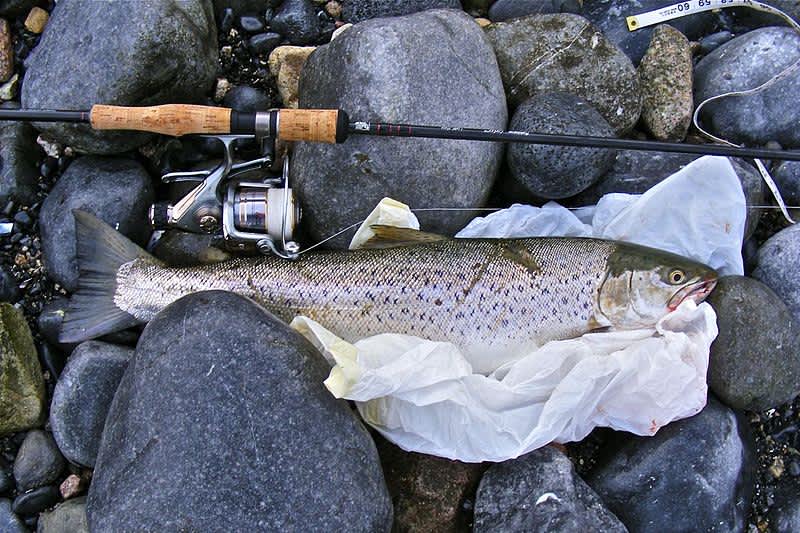New Zealand Study Explores Health Risks of Trout Eating Mice
OutdoorHub Reporters 05.07.14

Researchers from New Zealand’s Cawthorn Institute are embarking on a study to better understand the impact the consumption of mice has on a trout’s health. Just like in other parts of the world, New Zealand’s trout gorge themselves on small rodents whenever they can, gaining significant weight. Last year biologists found an Alaskan Rainbow trout with nearly 20 shrews inside its stomach. However, little is known about the health effects of a mammal-inclusive diet on trout, especially when the fish are eating mice laced with poison.
“We know that in a mast seeding year, mice numbers explode, and we also know that trout in back country areas feed on those mice,” New Zealand biologist and regional Fish and Game manager Neil Deans told the Nelson Mail.
The mice make nice bite-sized snacks for New Zealand’s brown trout, which in turn bloat the fish and make them more attractive for anglers. However, the mice could also be carrying sodium fluoroacetate, otherwise known as the pesticide 1080. Researchers currently have no knowledge of how the poison will affect the fish—or the humans that eat them.
“It’s good that the issue has been raised and that Department of Conservation has acknowledged that while the risks are probably very low, we aren’t able to quantify them without doing some research,” said David Hanes, head of the New Zealand Federation of Freshwater Anglers.
The risk is not in New Zealand alone—species such as rainbow, bull, and brook trout have all been documented consuming rodents before. Other fish, such as Louisiana redfish, will even eat larger creatures like nutria.
Most researchers believe that health risks to humans are extremely unlikely. Trout, like most fish, are also believed to be resistant to 1080.
“In theory it’s a possibility,” biologist Maurice Rodway told stuff.co.nz. “They [the mice] could eat it and then get into the water and trout could eat several mice but by that stage the breakdown of 1080 would have occurred. There’s certainly a lot of complexities in it, [but] I don’t think it’s a real risk.”

